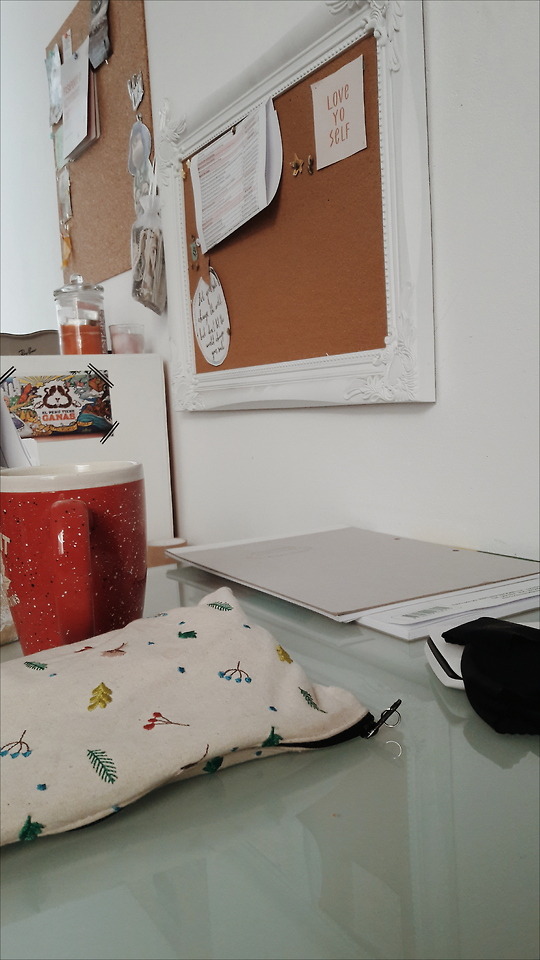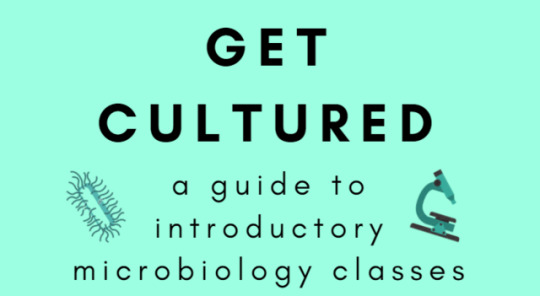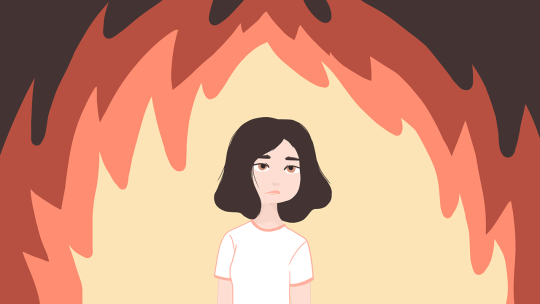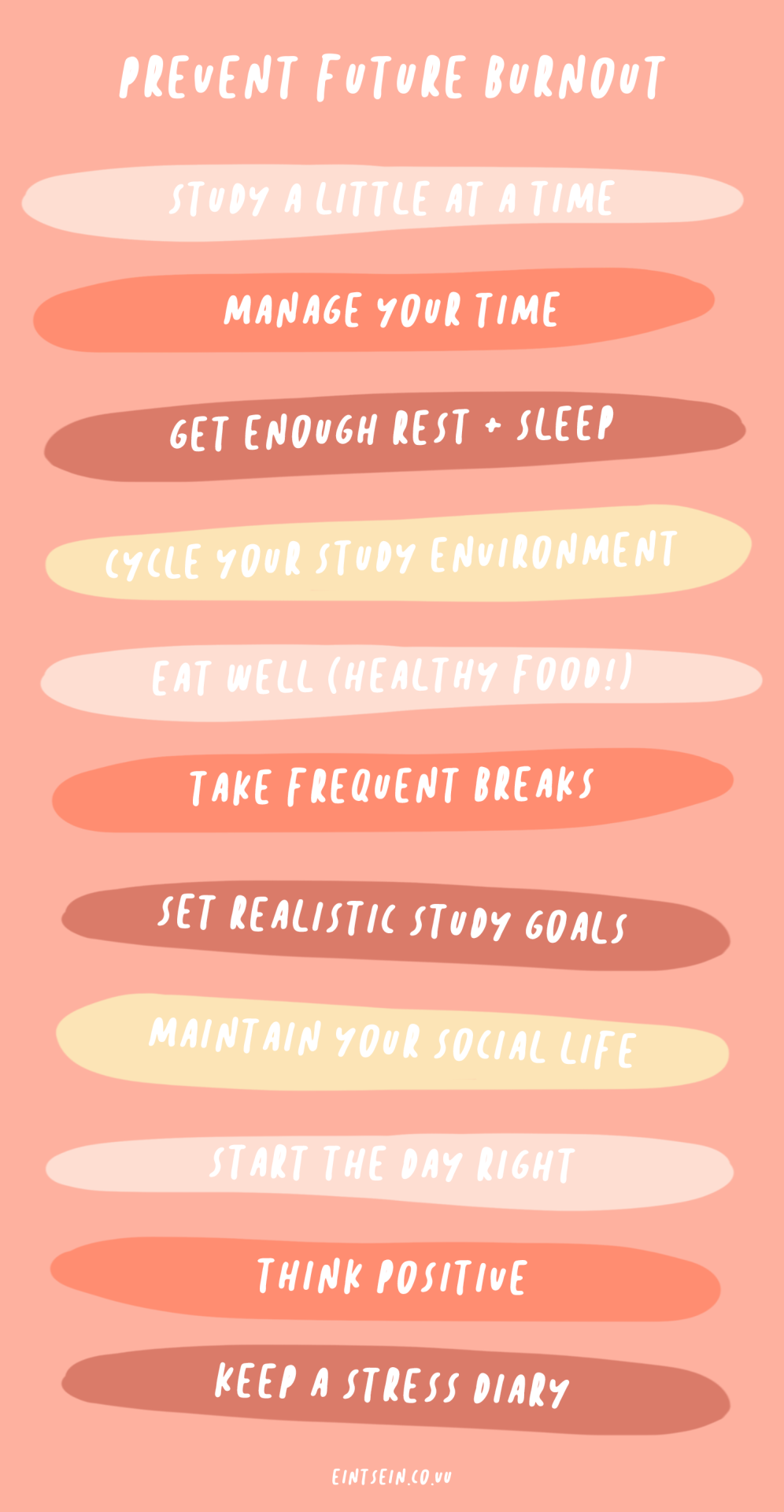「Established June 4 2016 」 ✦ Abigail ✦ 20 ✦ Third Year in College ✦ INFJ ✦ CO All posts are queued!
Don't wanna be here? Send us removal request.
Photo

I’ve been super inactive lately ~ I’m blaming the hot weather. but it’s raining again in the UK so here is a small burst of productivity ♡
#studyblr#study#studyspo#studying#study inspo#college#high school#academia#uni#university#student#bullet journal#planner#bujo#bulletjournal#weekly spread
3K notes
·
View notes
Text
How many Books have you Read?
The BBC estimates that most people will only read 6 books out of the 100 listed below. Reblog this and bold the titles you’ve read.
1 Pride and Prejudice - Jane Austen 2 Lord of the Rings - J. R. R. Tolkein 3 Jane Eyre – Charlotte Bronte 4 Harry Potter series 5 To Kill a Mockingbird - Harper Lee 6 The Bible 7 Wuthering Heights – Emily Bronte 8 Nineteen Eighty Four – George Orwell 9 His Dark Materials – Philip Pullman 10 Great Expectations – Charles Dickens 11 Little Women – Louisa M Alcott 12 Tess of the D’Urbervilles – Thomas Hardy 13 Catch 22 – Joseph Heller 14 Complete Works of Shakespeare 15 Rebecca – Daphne Du Maurier 16 The Hobbit – JRR Tolkien 17 Birdsong – Sebastian Faulks 18 Catcher in the Rye 19 The Time Traveller’s Wife - Audrey Niffeneger 20 Middlemarch – George Eliot 21 Gone With The Wind – Margaret Mitchell 22 The Great Gatsby – F Scott Fitzgerald 23 Bleak House – Charles Dickens 24 War and Peace – Leo Tolstoy 25 The Hitch Hiker’s Guide to the Galaxy – Douglas Adams 26 Brideshead Revisited – Evelyn Waugh 27 Crime and Punishment – Fyodor Dostoyevsky 28 Grapes of Wrath – John Steinbeck 29 Alice in Wonderland – Lewis Carroll 30 The Wind in the Willows – Kenneth Grahame 31 Anna Karenina – Leo Tolstoy 32 David Copperfield – Charles Dickens 33 Chronicles of Narnia – CS Lewis 34 Emma – Jane Austen 35 Persuasion – Jane Austen 36 The Lion, The Witch and The Wardrobe – CS Lewis 37 The Kite Runner - Khaled Hosseini 38 Captain Corelli’s Mandolin - Louis De Bernieres 39 Memoirs of a Geisha – Arthur Golden 40 Winnie the Pooh – AA Milne 41 Animal Farm – George Orwell 42 The Da Vinci Code – Dan Brown 43 One Hundred Years of Solitude – Gabriel Garcia Marquez 44 A Prayer for Owen Meaney – John Irving 45 The Woman in White – Wilkie Collins 46 Anne of Green Gables – LM Montgomery 47 Far From The Madding Crowd – Thomas Hardy 48 The Handmaid’s Tale – Margaret Atwood 49 Lord of the Flies – William Golding 50 Atonement – Ian McEwan
51 Life of Pi – Yann Martel 52 Dune – Frank Herbert 53 Cold Comfort Farm – Stella Gibbons 54 Sense and Sensibility – Jane Austen 55 A Suitable Boy – Vikram Seth 56 The Shadow of the Wind – Carlos Ruiz Zafon 57 A Tale Of Two Cities – Charles Dickens 58 Brave New World – Aldous Huxley 59 The Curious Incident of the Dog in the Night-time – Mark Haddon 60 Love In The Time Of Cholera – Gabriel Garcia Marquez 61 Of Mice and Men – John Steinbeck 62 Lolita – Vladimir Nabokov 63 The Secret History – Donna Tartt 64 The Lovely Bones - Alice Sebold 65 Count of Monte Cristo – Alexandre Dumas 66 On The Road – Jack Kerouac 67 Jude the Obscure – Thomas Hardy 68 Bridget Jones’s Diary – Helen Fielding 69 Midnight’s Children – Salman Rushdie 70 Moby Dick – Herman Melville 71 Oliver Twist – Charles Dickens 72 Dracula – Bram Stoker 73 The Secret Garden – Frances Hodgson Burnett 74 Notes From A Small Island – Bill Bryson 75 Ulysses – James Joyce 76 The Bell Jar – Sylvia Plath 77 Swallows and Amazons - Arthur Ransome 78 Germinal – Emile Zola 79 Vanity Fair – William Makepeace Thackeray 80 Possession – AS Byatt 81 A Christmas Carol – Charles Dickens 82 Cloud Atlas – David Mitchel 83 The Color Purple – Alice Walker 84 The Remains of the Day – Kazuo Ishiguro 85 Madame Bovary – Gustave Flaubert 86 A Fine Balance – Rohinton Mistry 87 Charlotte’s Web – EB White 88 The Five People You Meet In Heaven – Mitch Albom 89 Adventures of Sherlock Holmes – Sir Arthur Conan Doyle 90 The Faraway Tree Collection – Enid Blyton 91 Heart of Darkness – Joseph Conrad 92 The Little Prince – Antoine De Saint-Exupery 93 The Wasp Factory – Iain Banks 94 Watership Down – Richard Adams 95 A Confederacy of Dunces – John Kennedy Toole 96 A Town Like Alice – Nevil Shute 97 The Three Musketeers – Alexandre Dumas 98 Hamlet – William Shakespeare 99 Charlie and the Chocolate Factory – Roald Dahl 100 Les Miserables – Victor Hugo
In addition, I have italicized the books I have on my bookcase, but not yet read!
How many have you read?
73K notes
·
View notes
Text
you go bitch. you write those notes, you make them pretty if you want them to be pretty. you make them messy if you like it like that. you eat healthy. you take care of yourself. you get yourself a bullet journal. you organize that shit like it’s no problem. you get those grades. you get that amazing GPA. the world is yours to take. raise your head and take it. live the fucking life. you mcfreaking go.
29K notes
·
View notes
Text




Ordered the Oops! Bag from hellokalon.com and I absolutely love every single sheet I got!! The flaws are minor - the one missing sticker, cuts slightly off center. I love the quality and feel of these and cannot wait to use them!
#hellokalon#stickers#delivery#bujo#bulletjournal#bullet journal#planner#studying#study#studyblr#studyspo#student#school#college#uni#university#high school#academia#xx abby
5 notes
·
View notes
Text
small self care guide
🌿���🌼🐝🌻🥑💚🍑💕🌸
get out of bed
make your bed
tidy up your room
open the windows and let some fresh air in
brush your teeth
wash your face and apply a facemask
brush your hair and put it up (or however you feel most comfortable)
drink a glass of water and fill a bottle up for the rest of the day (then refill If emptied)
eat some fruit or veggies
cut your nails
do some breathing exercises
make a list of things you want/need to do
actually do them
you are worthy of love and I hope you have a wonderful day
14K notes
·
View notes
Text
study moods by subject
chemistry: a seat in the first row, diligent note taking, falling asleep in a textbook, color coded sticky notes but with no real system, fingers running across old ink
literature: studying in bed, a cat snoozing on the pillow, orchestral movie soundtracks playing softly, rereading passages that were absentmindedly passed through
math: strong cups of coffee, graph paper planners, crowded lecture halls, a furrowed brow, warm sweaters, that one special spot in the library
history: clicking pens, stacks and stacks of books, annotations in the margins, study sessions spread out on the floor, flickering candles, working in complete silence
biology: colorful illustrations, well worn flashcards, reusable water bottles, always breaking pencil lead, carefully drafting important emails
art: getting lost in readings, pastry and a coffee, receipts repurposed as bookmarks, love for rainy days, in class hand raising anxiety, a whirlwind of a backpack
world languages: early mornings, a deep seated quizlet addiction, studying with friends, practicing presentations aloud in an empty room, fidgeting in chairs, detailed study guides
engineering: hands running through hair, cups of tea either drank while they’re too hot or entirely forgotten, typing quickly, the sound as hallways fill in between classes
music: stretching fingers after long periods of writing, 11:59 submission for a 12:00 deadline, celebrating the completion of a task with something sweet, deep respect for teachers
#math and chemistry are my moods#study tips#studying#study#students#student#studyblr#studyspo#study motivation#studygram#college#uni#university#high school#school
22K notes
·
View notes
Photo



Different locations for the same study session! Since my classes are in the middle of the day I have to plan carefully when I’m going to revise or do hw🎒 These past ten weeks have definitively helped my organization skills! °♡°
🎧: Outro:Tear - BTS
#study#studying#studyblr#studyspo#studygram#study motivation#student#college#academia#highschool#high school
1K notes
·
View notes
Photo

072918 | egotistic by mamamoo
how has the summer almost gone by without me knowing?
#bujo#bullet journalling#bulletjournal#bullet journal#study time#studying#study#studyblr#studyspo#studygram
950 notes
·
View notes
Photo


2 March • 1/100 days of productivity • First post on studyblr. I’m starting the 100 days of productivity challenge off with some business studies revision notes of chapters 1 and 2 (47 chapters to go till IGs in May aaah) but I hope that being part of this community will motivate me to study better and achieve more! 😊😅
#studyblr#studyspo#studying#student#study#college#notes#bujo#bullet journal#university#academia#high school#studygram#school
4K notes
·
View notes
Photo


12•1 These beautiful orange roses brighten up my desk on this grey old day. Now to get down to work….
10K notes
·
View notes
Photo

I love microbiology but it is a difficult class and is made even more difficult when you have a bad prof. I started this post after I took an introduction to microbiology class but waited to finish it until I completed an upper year microbiology class this past semester. This way I can also provide insight and tips on what will help you not only in the class but also how to make sure you are prepared for upper year classes.
Topics you may cover in your intro microbio class:
History of microbiology
Microbial taxonomy (naming and classification)
Microscopy and specimen preparation
Prokaryotic cell structure and function
Microbial nutrition and growth
Control of microorganisms by chemical and physical agents
Microbial metabolism (including energy, enzymes, regulation, chemosynthesis, photosynthesis, and biosynthesis)
Microbial genetics (including replication, mutation, gene expression, gene regulation, recombination, plasmids, etc.)
Virology
Immunology
And areas of/related to microbiology you may explore in upper classes may include: environmental microbiology, food and industrial microbiology, immunology, medical microbiology, molecular genetics, prokaryotic physiology, virology, and more!
Tip #1: Understand new material at the end of every week
Microbiology is a content heavy course. Even if you’re busy with other classes and responsibilities, do a thorough review of new content you’ve learned over the past week. Give yourself time to get help/go to office hours in case you don’t understand a concept (you can’t do this if you leave studying till the last minute).
Tip #2: Know the names of important microorganisms
This all depends on your prof. I had an insane prof who wanted us to know the names of every single microbe he mentioned in passing, but this shouldn’t be the case for everyone. The prof for my upper level microbiology class provided bonus marks if we could state the specific genus of a microorganism in any of our examples on the final exam. If you can, talk to students who have taken the class before for more insight.
Regardless, make sure you know the species, genus, etc. of microbes that your prof spent a significant amount of time talking about or ones that come up more than once.
Tip #3: Pay attention when you’re learning about metabolism
I say this for two reasons: (1) Metabolism is a difficult topic to understand and (2) It will benefit you to have a good understanding of metabolism now. Metabolism covers a wide range of ideas and concepts – having a good understanding will help you in upper level bio/biochem classes and will help you link ideas together.
Tip #4: Study the material in different ways
Revise your notes in a variety of ways. I prefer to type my notes and write them out after class. Typing allows me to get all the info down, I can insert diagrams from lecture slides as I go, and leaves me with a detailed study guide to use when I’m studying for finals (I also add material from the textbook not covered in lectures to my typed notes after class). Writing out my notes afterwards reinforces the material, allows me to shorten my notes to the important stuff (e.g. I only draw necessary diagrams), and allows me to reorganize the material (e.g. make acronyms, put the info into a table, compare and contrast 2 concepts like cellular respiration and photosynthesis).
You can also use other methods to study such as flashcards, mind maps, read the material out loud, etc. Only use a method if it actually works for you – for example, lots of people use flashcards to study but I rarely use them.
Another really good way to study is to make a practice test or at least think about how your prof will test certain concepts. This is a really helpful strategy for preparing for multiple choice and written questions.
Tip #5: Study with friends
This also ties into the idea of thoroughly learning new material at the end of every week. Plan a weekly study session or talk to your friends and hold each other accountable for staying on top of things.
I usually just met with one or two of my friends before each midterm. We would find a room with a whiteboard and spend an entire afternoon going over our notes together. I had other friends who would meet at least once a week and review the past week’s material together.
Tip #6: Draw it out
I personally love using whiteboards to study and would definitely recommend buying your own. If you don’t have one though, find an empty classroom with a whiteboard or just draw it out on a blank page. Don’t draw out every diagram you have available to you – find the most useful ones! I like to draw out a process and then write down the description of the process side by side.
I also like to combine diagrams that I find useful. Drawing diagrams also works if you’re trying to compare and contrast processes. Having all the info laid out in one place can help you see what is truly similar or different, rather than trying to memorize the processes as separate things.
For example, I had a few different diagrams for photosynthesis in my notes. Instead of studying them separately I combined them together so I had all the info in one place.
Tip #7: Utilize all the resources available to you
Ask questions! Go to office hours! Most profs are happy to help meeting with them one-on-one really ensures you are getting a good understanding.
You can also ask your lab TA for clarification on concepts, because often the content you cover in labs is tied to content covered in lectures. My TA heard us all complaining about how our prof did not properly explain a difficult concept. So, she did a quick search and found the name of a youtube channel she remembered learning from in her undergrad.
As well, if the textbook for your class proves to be useful then actually use it! I like to read over the textbook chapter before class because then I can focus on understanding the fine details during lecture. (I’ve also compiled some online useful books and online resources at the bottom of this post for you to check out.)
Advice specifically for labs:
Use aseptic technique! Wash your hands, work close to the flame, etc. If you’re not sure about something, wait and ask your TA. And try not to spill anything. Someone in my lab spilled a tube of E.coli broth on their lab notebook which then had to be autoclaved, which meant they had to buy a new notebook.
DON’T FORGET TO FLAME THE LOOP!!
Even though you’ll be working in partners make sure you can do everything on your own. It might be easier to have your partner hold a piece of equipment while you do something else but it won’t help you when you’re doing the same work alone during a lab exam or as a research assistant.
Make sure you can do a Gram stain properly. If you can’t do a proper Gram stain consistently you can ask your TA if you can practice on a few slides or have them watch you do a Gram stain to correct any mistakes you’re making.
Be specific when answering questions. Your TA wants to make sure you know exactly what you’re doing. Also, write down the full name (species + genus) of the microorganism you’re working with the first time you mention it and then feel free to use the abbreviated form after (i.e. write down Escherichia coli first but refer to it as E.coli thereafter)
Listen and be safe. Your TA will probably stress safety a lot but make sure you pay attention if they tell you need to take certain precautions with certain microorganisms (especially where to dispose certain samples).
Have fun! My favourite memory of the lab was when we were looking at samples we had prepared from soil the week prior. Everyone was comparing the fungi that had grown in their petri dishes and trying to see who had the most “fuzzy” sample.
Plan your time well. Read through your prelab carefully and make note of tasks that may take up more time (waiting for molten agar to cool, waiting for a sample to dry so you can heat fix the slide, etc.).
Label everything! You really don’t want to forget which test tube contains which organism or which tube is which when performing a serial dilution
Tie in things you do in the lab to things you’ve learned in lectures. You’ll make lecture material more interesting and you might learn different applications of what you’re doing in the lab.
At the end of the lab: Dispose of your materials in the proper waste bins! Wipe down your lab bench! Wash your hands!
Microbiology resources:
Some books related to microbiology/cell biology (note: these books aren’t meant as study materials but discuss some really interesting topics related to microbiology): The Gene by Siddhartha Mukherjee, I Contain Multitudes: The Microbes Within Us and a Grander View of Life by Ed Young, Microbe Hunters by Paul de Kruif, Missing Microbes: How the Overuse of Antibiotics is Fueling Our Modern Plague by Martin Blaser, and Spillover: Animal Infections and the Next Human Pandemic by David Quammen.
For my class I used Prescott’s Microbiology ( Willey, Joanne M., Sherwood, Linda M., Woolverton, Christopher J.; 8/e) and A Photographic Atlas for the Microbiology Laboratory (Leboffe, M.J. and Pierce, B.E.)
For online resources I will always recommend Khan Academy. I found they didn’t have everything I needed for this class specifically but the topics they did cover were explained well.
Wikipedia! I’ve had multiple profs this year tell me to use Wikipedia. Please don’t go citing Wikipedia in any of your lab reports (but you can look at their references at the bottom of page to find more info). Wikipedia is good for finding up to date information, especially for information related to microbial taxonomy.
Some Youtube channels that have helpful videos include: Armando Hasudungan, Bozeman Science, Crash Course (also I’m pretty sure there’s a song about the Krebs Cycle out there)
Check out my other posts here!
#masterpost#microbio#study hard#study tips#studying#study#studyblr#studyspo#study motivation#studygram
1K notes
·
View notes
Text

[Aug 22 2018]
Interpersonal Communication notes on a cloudy morning! The semester is off to a decent start, but as class started, I realized I had forgotten to do so much as look over the chapter.
Notebook and pencil bag are both from Indigo, purchased in Canaea!
listening to: a midsummer night's sweetness - San E, Raina

#studyblr#studyspo#studying#student#study#xx abby#college#notes#university#academia#high school#studygram#xx i write too#school#uni#classes#inspiration#my handwriting#students#study inspiration#study motivation#study notes
17 notes
·
View notes
Photo


8.11.18 | finally getting around to some leisure reading again! so excited to spend the rest of my summer reading my new book
[10/100 days of productivity]
#studyblr#studyspo#studying#student#study#college#motivation#studygram#relax#self care#book list#books#reading list
628 notes
·
View notes
Link
#studyblr#studyspo#studying#student#study#college#bujo#bullet journal#motivation#university#academia#high school#studygram#bulletjournal#music#school
168 notes
·
View notes
Text
How to Deal with Study Burnout

As students in this day and age, it’s quite common for us to juggle rigorous academic responsibilities and overwhelming extracurricular activities. As a result, we might feel burnt out. But what exactly is burnout?
Burnout is when you feel physically and mentally exhausted as a result of constantly lacking the energy required to fulfill the demands of your studying.
Burnout can be broken down into three parts:
Exhaustion is what causes you to feel tired all the time and unable to concentrate. You could also get sick or have trouble sleeping.
Cynicism or depersonalization is when you feel disconnected from those around you, e.g. your friends and family.
Inefficacy is a decrease in productivity, efficiency, or quality of your work.
How do you know if you have burnout?
Symptoms may vary, but they include:
Being unable to absorb new information
Intellectual exhaustion
Decreasing academic performance and productivity
Feeling like you need to prove yourself
Making yourself work even more, even though you’re exhausted or being unwilling to study further
Neglecting your needs
Long term fatigue
Showing disinterest in things you normally enjoy, e.g. hobbies or friends
Denying that something’s wrong with you (may manifest in the form of aggression)
Avoiding social interaction
Feeling empty and depressed
What can I do to fix it?
Here are some short term solutions for dealing with burnout.

1. Take a power nap Power naps are life changing. They help you recharge your energy and get you ready to start working again. They also improve learning, memory, creativity, alertness, and mood. I would recommend napping for 30 minutes at most, because anything more will lead to a longer sleep session.
Optional: drink coffee before your nap - something that takes a short while to consume like a shot of espresso - so that you’ll feel alert and revitalized afterwards!
2. Take a shower A cold one will wake you up, but a warm one will calm you down. I suggest starting with warm water, then ending with cold water.
3. Exercise Whether it’s playing soccer or doing yoga, the important thing is to get moving! Exercise releases endorphins or happy hormones that help you combat stress.
4. Run a quick errand This will help take your mind off things while also getting something done! You’ll also end up walking, which is technically a form of exercise.
5. Call or visit a friend Sometimes what we’re lacking is social interaction, and hanging out with a friend definitely helps. Whether it’s providing you with a distraction or giving emotional support, your friends are always there to help you. Plus, science has shown that being with friends reduces your cortisol (stress hormone) levels.
6. Eat a snack Preferably a healthy one. Eat something with proteins, vitamins, and fibers to boost your mood. Here’s a list of mood boosting foods.
7. Surf the web This requires A TON of discipline, but it’s definitely a game changer. Surfing the web is one of the most relaxing things you could do. I personally look for a good laugh during my study breaks, so I’d watch a comedy or scroll through memes to get those happy hormones up and running.
8. Do an activity you find interesting, e.g. a hobby We all need happiness in our lives, and our hobbies are perhaps the best way to find that joy. You could sit down with a page turning adventure, or go outside and shoot hoops, or listen to a podcast, or even bullet journal, as long as you’re having a good time.
9. Listen to music Music is one of the ways we gain energy, so I always make time for it during the day. However, you should choose the right music, because not all the music you love is going to make you feel energized. For me, it’s pop punk with hard hitting beats, thundering guitars, and really upbeat, enthusiastic vocals. Some of you might be energized by mellow music with dreamy vocals that make you feel like you’re floating in the clouds. If you choose the wrong music, you might just end up feeling sluggish and drained.
10. Get some fresh air Your brain needs 20% of the oxygen in your body. Fresh air brings more oxygen to your brain so that you can think more clearly, feel less tired, and concentrate more easily.
How do I make sure I don’t get it in the future?
Avoiding study burnout in the long term has a lot to do with our study habits - as well as our daily habits. We need to make sure that our bodies and minds receive the things they need, and that we aren’t overworking them.

1. Study a little at a time Break up your notes into smaller, more easily digestible pieces and learn a little at a time. This way, you’re not overwhelming your brain, and you have time to let that new knowledge settle in.
2. Time management Having a good study schedule is crucial in preventing burnout. You don’t want to force yourself to work at your slow hours. Aside from that, you definitely shouldn’t leave things until the last minute, and sticking to a schdule will help you pace yourself. Here’s a post I wrote on How to Make an Efficient Revision Schedule and How to Beat Procrastination.
3. Get enough rest I cannot stress enough that sleep is so important for you. It improves your cognitive functioning and also enhances your mood, making it less likely that you’ll get burnt out. Make sure to take power naps, too, if you feel like you need them.
You also really shouldn’t pull all-nighters. Sleep is also involved in cementing memories in your brain, so if you study a little before you sleep, you’re bound to remember more than if you studied a chapter during an all nighter.
Having trouble sleeping? Here’s a post I made about my night routine and how to get better sleep.
4. Cycle your study environments Your body and mind are bound to get tired from being in the same location for prolonged periods of time. The best way to fix that is to study in different places: at your desk, your backyard, the dining table, a cafe, a friend’s house, the library, etc.You should find a frequency that works for you. I like to switch it up every 2-3 days; some people change locations every week.
5. Eat well As I’ve mentioned before, healthy foods with protein, vitamins, and fiber greatly improve your mood and your physical health. Proper nutrition will give your brain the power it needs to push through. Also make sure not to skip meals; honestly you’ll just end up feeling terrible afterwards.
6. Take frequent breaks Let’s face it, we’re human, we’re bound to get tired from studying for a long time. Taking breaks enables our brains to digest the information we just learned in a pace that works for it. Breaks also help us focus on something other than studying, so that when we do get back to it, we’ll be ready to digest even more information.
7. Set realistic study goals You’re gonna memorize all 500 pages of your biology textbook in one day? Good luck with that. Some of you might be compulsive studiers, but this kind of habit isn’t very good for your brain or your physical health. Studies have shown that excess studying can lead to lower productivity, fatigue, and - you guessed it - burnout. In the end, this will result in lower academic performance, perhaps even in the long run. So instead of trying to study so much in one sitting or one day, break up your material into chunks.
8. Maintain your social life Wherever you lie on the introvert-extrovert spectrum, everyone needs social interaction once in a while. It keeps you sane and healthy. Go out with your friends, have a sleepover, or maybe even a study date.
9. Start the day right What we do in the morning can significantly affect our mood for the rest of the day. Sometimes we don’t even feel like getting up in the morning, or doing anything that day. One thing you should do is create a morning routine you enjoy to jumpstart your day. Here are 8 Morning Habits for Productivity.
10. Think positive When we’re feeling burnt out, it’s hard to not think negatively about everything. In reality, that just makes our condition worse. So think positively! Start small, like congratulating yourself for getting out of bed today, and then work your way up to bigger accomplishments, like finishing 2 chapters of your textbook.
11. Keep a stress diary This is kind of a new concept for me, but it’s really great. How it works is that each day, you would write down all the things that made you stressed and how they made you stressed. This will help you identify the things you’re doing that’s causing your burnout, e.g.
Too long study hours? take regular breaks
Too much time in the same place? cycle your study environment
Not eating properly? set aside time to eat healthy meals at least 2 times a day
Not doing the things you love? schedule in time for that, e.g. during your long breaks
Not getting enough human interaction? make a study group
Too much negative thinking? adopt a positive mindset (you can always start small)
Not getting enough sleep? fix your sleep schedule
And that’s all I have for you guys this time. Hope these tips will help you manage your stress and study burnout whenever you have them. And if you have any questions, don’t hesitate to drop an ask!
P.S. if any of you want to see the images in this post in better quality, click here (link to google drive)
#studyblr#studyspo#study hard#mine#masterposts#burnout#health#self care#study burnout#tips#care#advice#hey sareena
29K notes
·
View notes
Text
small habits to adopt
wake up early
drink a glass of water as soon as you wake up
meditate or concentrate on your breathing for at least 2 mins
visualize your goals for the day and for the future
make your bed
do calf raises or squats while brushing your teeth
floss
dry brush
take a cold shower (or end a hot shower with cold water right after for about 3 mins)
put on lotion while your skin is still damp
cleanse, tone, and moisturize your face
apply sunscreen
drink a glass of water before and after every meal
listen to a podcast/ted talk instead of music while walking or driving
park far away from where you’re going
stand up straight
look at people in the eye when talking to them
look straight ahead when walking, not at the ground
smile at strangers
stop complaining (it’s bad for your health)
bring cash instead of credit card
track your expenses
turn off notifications on your phone when doing work
resist the urge to go on your phone and observe your surroundings more
set a timer for 5 mins when scrolling through social media and stop when the time is up
learn at least 5 new vocab words from your target language every day
exercise while watching shows/videos
read at least 10 pages every day
do tasks that can be done in 2 mins right away
drink tea
prepare workout gear the night before
jot down tasks for the next day before sleeping
write down quotes/lyrics that strike a chord
spend 30 mins on a hobby
journal and write down things you are grateful for
aim for 7-8 hours of sleep
100K notes
·
View notes
Text
Get up early. Stay focused. Watch less TV. Read more books. Avoid time wasters. Invest in your health. Take calculated risks. Write down your goals. Work smarter, not harder. Do something you believe in. Foster meaningful relationships.
57K notes
·
View notes